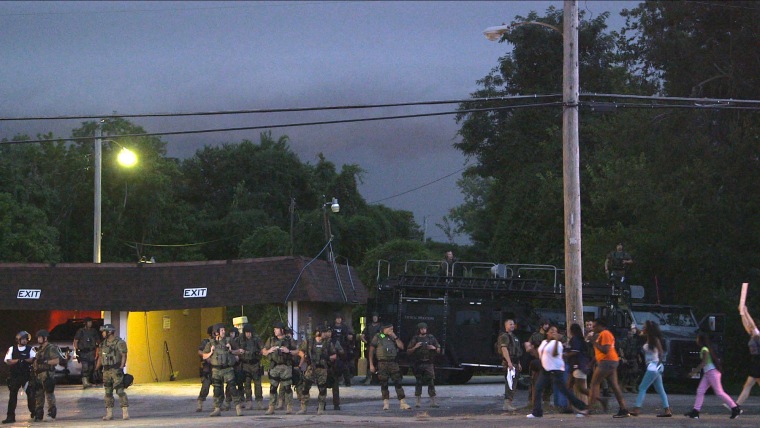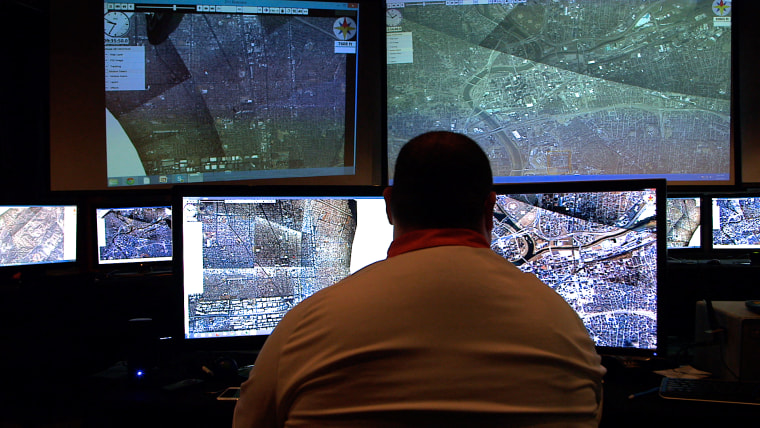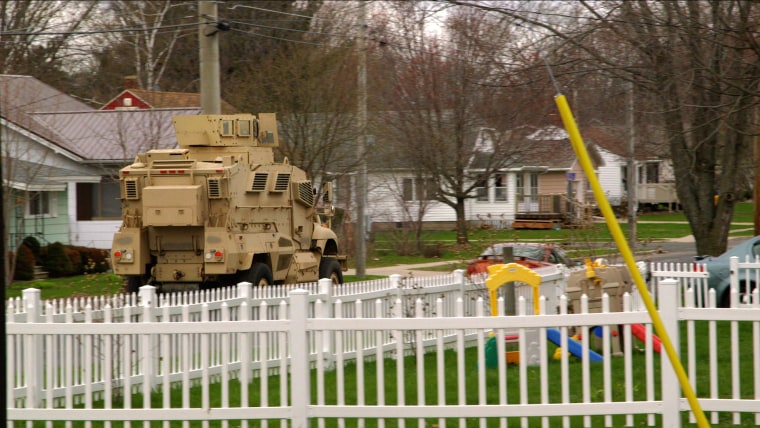At a time when America is fighting battles overseas, the rapid militarization of local police forces has made many citizens question whether the real fight is at home or abroad.
Director Craig Atkinson exposes the disturbing reality of the evolution of American police culture with rare access into the day-to-day operations of SWAT teams and a look at police conventions.
Using his personal experience from having a father who was an officer and later a SWAT commander in a city near Detroit, Atkinson shows the harsh reality of the Defense Department’s 1033 program that has provided local police departments with more than five billion dollars' worth of surplus military equipment since the '90s.
The film which just won the award for Best Documentary Feature at this year’s Tribeca Film Festival was shot over two years around the time of the Ferguson riots and almost came to a halt when Atkinson’s team was repeatedly denied access by law enforcement in response to a rise in negative press.
NBCBLK spoke with director Craig Atkinson about his directorial debut, “Do Not Resist,” the effects that the militarization of police has on communities and the lack of oversight in the Defense Department’s 1033 program.

Do you think police forces should use militarized vehicles? What’s the threshold for the use of these vehicles?
In the late 80s, early 90s in Detroit, guys were using assault weapons back then and officers had to face that. Back then, they didn’t have armored vehicles, a lot of people got hurt and it was a significant problem. I personally think that the equipment must be available to police officers in those situations however we keep hearing that they’re going to be used for those situations and then in reality they’re being used two or three times a day to serve search warrants.
That application with the same equipment I feel is a complete disconnect from the principals of policing. It’s a complete departure of how the police should interact with the community and I think it creates tremendous ill will in communities. We can’t use the equipment for situations that it’s not necessarily sold to the public for.
"Every responsible police agency in the country that I spoke with has told me that you don’t lead with the SWAT team."
Is the use of military equipment for riot suppression justified?
For those situations like in Ferguson, every responsible police agency in the country that I spoke with has told me that you don’t lead with the SWAT team. In Ferguson they lead with the SWAT team because they had been given all this equipment with zero training on how to use it.
RELATED: Your Quick Guide to the Tribeca Film Festival
In cities that are more tactically sound, they have plain clothes officers out in front as a buffer in order to interact with the crowd and allow the crowd to facilitate their protest and then if it does get violent, then they have the SWAT team standing by that they can bring in.
Ferguson was a completely different situation where they lead with the SWAT team and the citizens responded accordingly because they felt like they were being attacked by an occupying force. I feel it would have gone totally differently if they did what is taught for police officers, which is to go with the soft approach and keep that equipment staged behind.
In the film, you show some footage from a 2014 hearing of the Senate Homeland Security and Governmental Affairs Committee, which was the first congressional hearing on the militarization of police. What was the result of those hearings on the larger issue?
I think the interesting point about that meeting is it’s basically the moment when Congress is finding out that over thirty years this program has been going on and there’s been no oversight. Nothing came of those hearings and it was a great debate but it showed me that our congress is almost powerless now at the mercy of these equipment suppliers and defense contractors who are obviously going their way without congress and getting grants without any type of oversight.
RELATED: White Millennials Talk About Race in Video Series, 'Whiteness Project'
It’s really surprising for people to hear what came of the President Obama’s Task Force on 21st Century Policing meeting or the congressional committee hearings. Basically the president ended the use of track vehicles, which were rarely being used so it had a nominal impact. But they’re not asking for the removal of the MRAP vehicles or any of the other military equipment out there.

Do you think that the militarization of police is perpetuating a criminal mentality in communities?
I think that there is a scary threshold that we are starting to cross even with the technological component, which is this 'guilty until proven innocent' model where you’re putting all these co-factors together in a computer database and having an algorithm analyze it to determine who’s good and bad.
This proactive predictive policing is being implemented in pilot programs and I think that’s where we need to make sure we’re not crossing any lines and destroying the fabric of our justice system which is innocent until proven guilty, not the other way around.
[This interview has been edited and condensed for clarity.]

